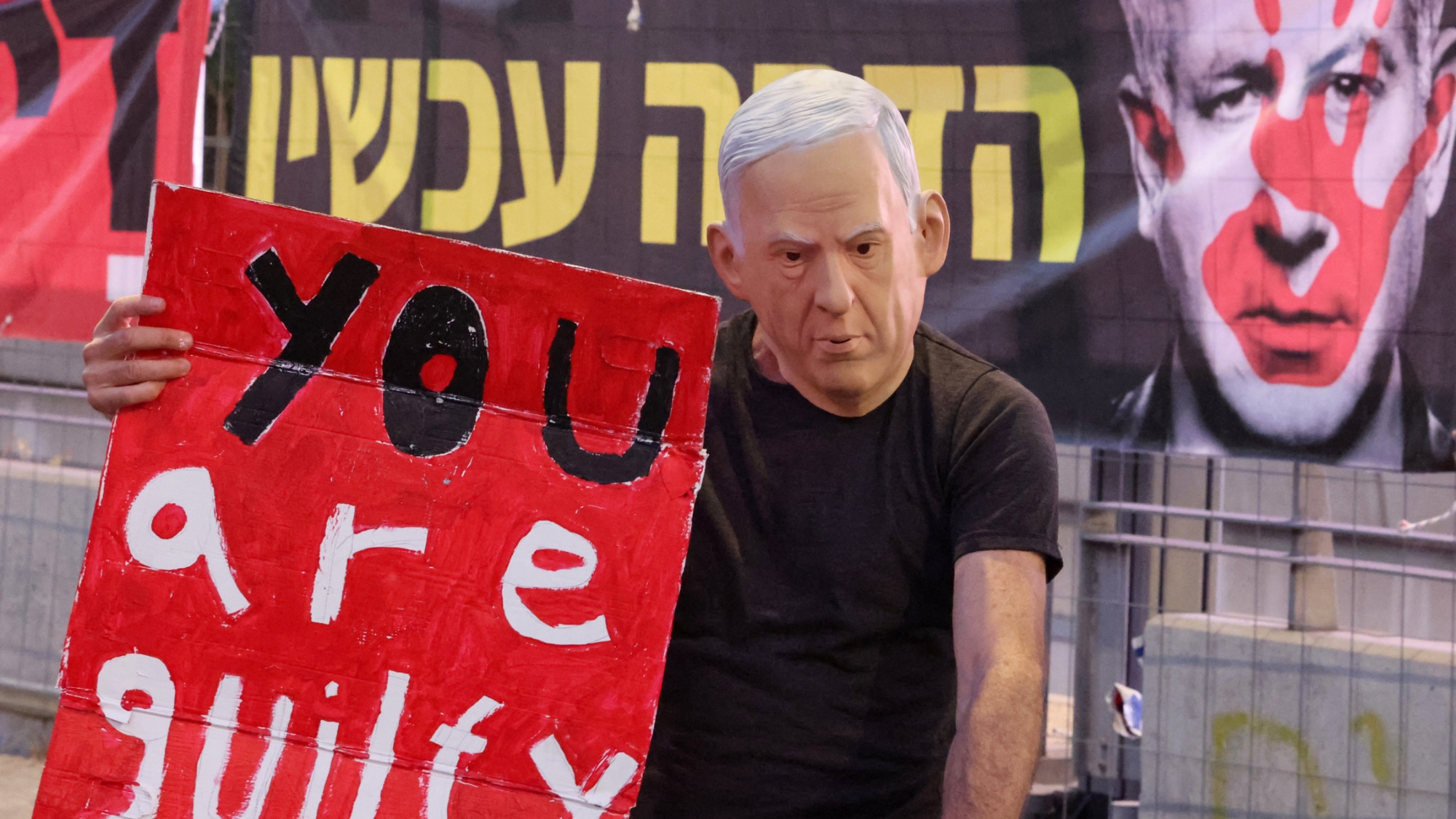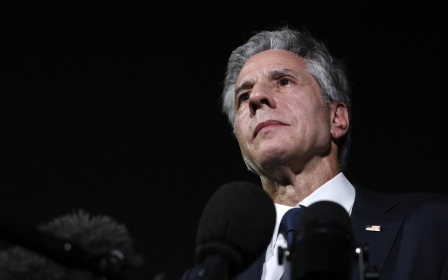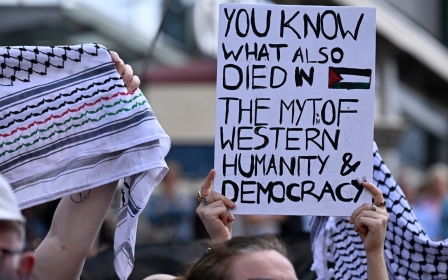Families accuse Netanyahu of failing to return Israeli captives alive

The families of Israeli captives held in Gaza have accused Prime Minister Benjamin Netanyahu of failing to bring their relatives home alive amid growing calls for a general strike to force a deal with Hamas.
The Hostages and Missing Families Forum on Sunday blamed Netanyahu's government for blocking the deal that could have secured the release of the captives.
Their statement came after the Israeli military announced it recovered the bodies of six Israeli captives from Gaza overnight.
All six were alive when Hamas and other Palestinian groups captured them on 7 October. According to Israeli media, at least three of them were on prisoner exchange lists that Hamas agreed to in July.
The exact circumstances of their deaths were not immediately clear.
New MEE newsletter: Jerusalem Dispatch
Sign up to get the latest insights and analysis on Israel-Palestine, alongside Turkey Unpacked and other MEE newsletters
The Israeli military said all six captives were “brutally murdered”. Hamas said they were killed by Israeli gunfire.
"For 11 months, the Israeli government led by Netanyahu failed to do what a government is expected to do, return its sons and daughters home," the forum, which represents many captives' relatives, said in a statement.
"A deal for the return of the hostages has been on the table for over two months. If it weren't for his thwarting, the excuses and the spins, the hostages whose deaths we learned of this morning would probably be alive."
In recent weeks, the Israeli military has increasingly recovered the bodies of captives from Gaza, adding to the anger of their families, who have been calling for a deal for months.
'Netanyahu abandoned the hostages. It is now a fact'
- The Hostages and Missing Families Forum
The Hostages and Missing Families Forum has led demonstrations calling for a ceasefire deal with Hamas that would see all Israeli captives exchanged for Palestinian prisoners.
Hamas blamed the deaths of the six captives on Netanyahu and the United States, saying they were blocking a deal the group had already agreed to on 2 July.
Netanyahu said in a statement that Israel remains committed to the deal and accused Hamas of obstructing it.
Calls for a strike
Sunday's announcement has sparked a flurry of reactions across Israel.
The Hostages and Missing Families Forum has vowed to bring the country to a standstill, with growing calls for a general strike.
“Netanyahu abandoned the hostages. It is now a fact. Starting tomorrow, the country will tremble. We call on the public to prepare. The country will grind to a halt. The abandonment is over,” the forum said.
Opposition leader Yair Lapid backed calls for a general strike.
“I call on every citizen whose heart is broken this morning to come at 7[pm] to Begin [road in Tel Aviv] to demonstrate with us,” Lapid said.
Yoav Gallant, the defence minister and a member of Netanyahu’s Likud party, released a statement urging the premier to finalise a deal with Hamas to secure the release of the remaining living captives.
"It's too late for the abductees who were murdered in cold blood. The abductees who remain in the captivity of Hamas must be returned home," he said.
Ron Huldai, the mayor of Tel Aviv, announced on social media platform X that his municipality will join a nationwide strike on Monday.
“Tomorrow, beginning in the morning until midday, there will be no reception of the public and we will allow all employees to go out and support the families’ struggle,” he said.
Middle East Eye delivers independent and unrivalled coverage and analysis of the Middle East, North Africa and beyond. To learn more about republishing this content and the associated fees, please fill out this form. More about MEE can be found here.




